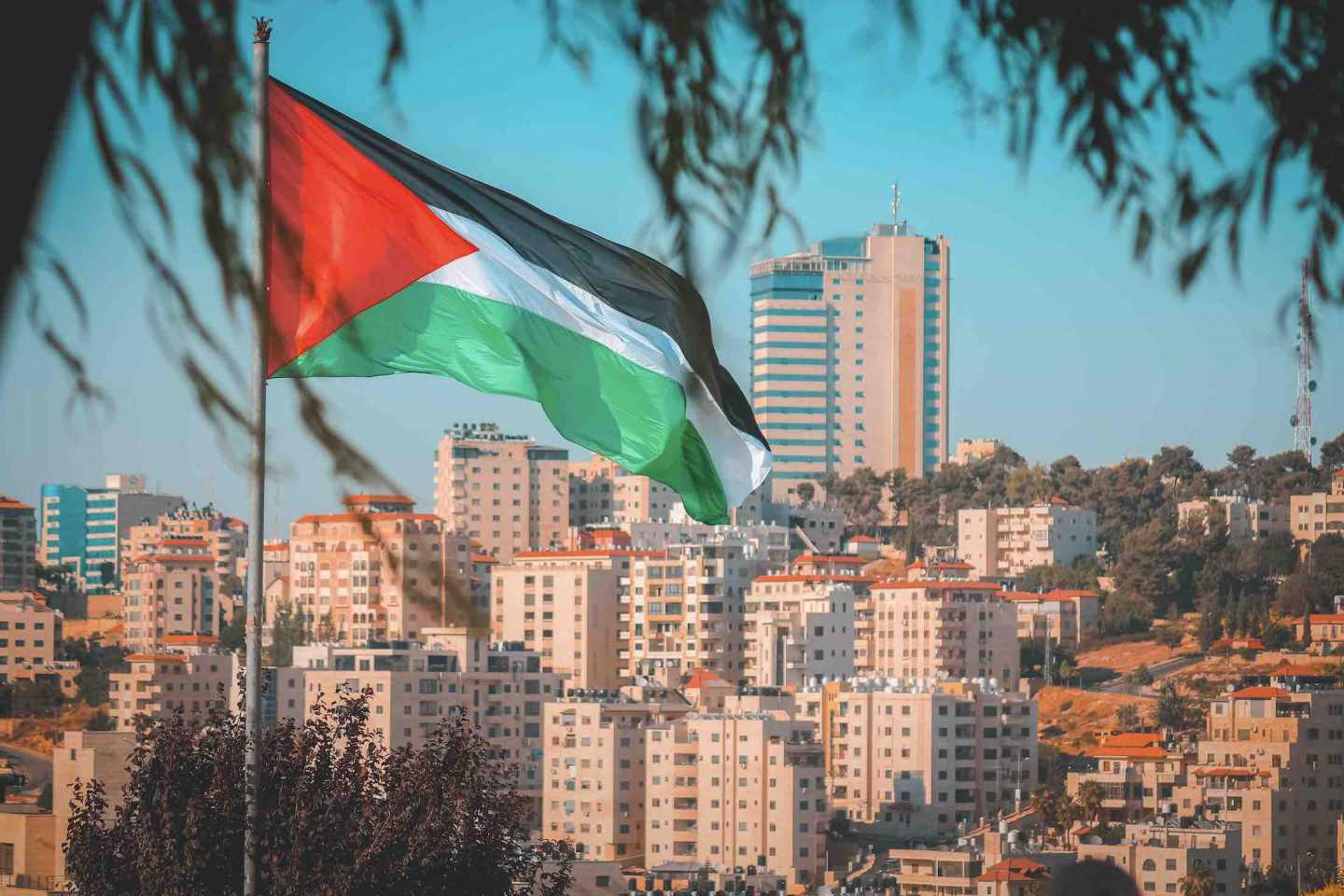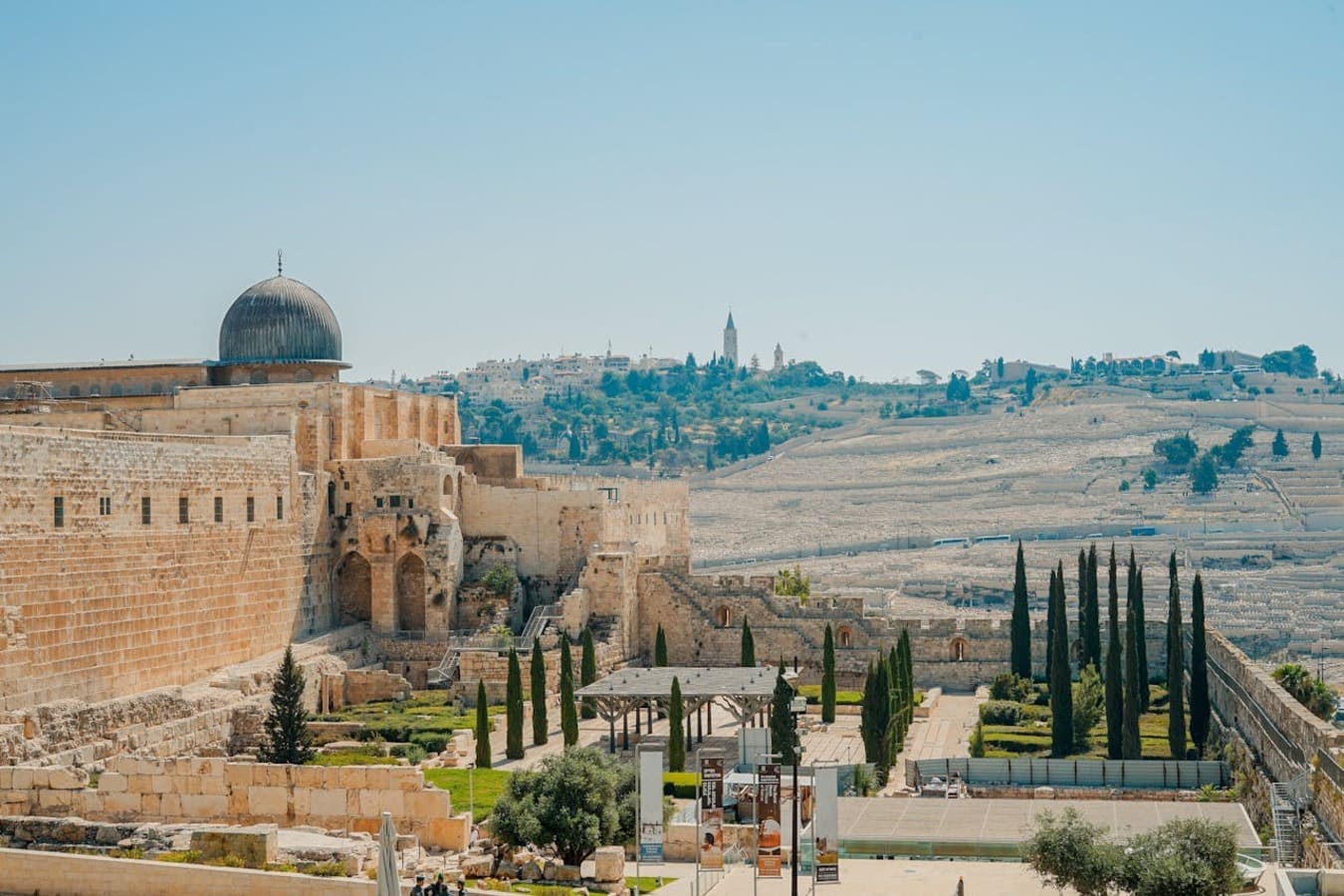Marktonderzoek in Palestina

Palestine has a unique market marked by its diverse cultural heritage and complex geopolitical landscape. Despite facing numerous challenges, including political tensions and economic uncertainties, market research in Palestine presents promising opportunities for businesses willing to navigate its intricacies.
What Is Market Research in Palestine?
Market research in Palestine studies consumer behavior, identifies emerging trends, evaluates competition, and assesses regulatory frameworks. Palestine’s unique market dynamics, influenced by political instability and cultural nuances, require tailored approaches to market research.
Why Do Businesses Need Market Research in Palestine?

Businesses encounter many challenges in navigating the Palestinian market, stemming from its complex geopolitical environment. Political instability, regional conflicts, and economic uncertainties significantly impact consumer behavior, market dynamics, and regulatory frameworks.
Market research in Palestine helps businesses assess the competitive landscape and identify key players within their industry. By analyzing competitors’ strengths, weaknesses, and market positioning, companies can develop strategies to differentiate themselves and carve out a distinct market niche. Additionally, market research aids businesses in evaluating regulatory requirements, market entry barriers, and potential risks, allowing them to make informed decisions and mitigate potential challenges in Palestine’s business environment.
Who Uses Market Research in Palestine?
In Palestine, various stakeholders rely on marktonderzoek to inform their decision-making processes and strategic initiatives. Here are some key entities that utilize market research:
• Domestic Businesses: Palestinian companies across various industries leverage market research to gain insights into consumer behavior, market trends, and competitor strategies. By understanding the local market dynamics, these businesses can optimize their operations, refine their product offerings, and develop effective marketing strategies to better serve their customers.
• International Corporations: Multinational corporations interested in entering or expanding their presence in Palestine often conduct market research to assess market demand, competitive landscape, regulatory environment, and cultural nuances. This information enables them to tailor their business strategies and offerings to the Palestinian market, thereby increasing their chances of success.
• Government Agencies: Government entities in Palestine, including ministries, regulatory bodies, and economic development agencies, rely on market research to inform policy-making, economic planning, and investment promotion efforts.
• Non-Governmental Organizations (NGOs): NGOs operating in Palestine use market research to assess socio-economic trends, identify community needs, and design development projects and programs that address specific challenges.
Onze huidige marktbeoordeling en aanbevelingen

We believe Palestine’s market shows resilience and potential for growth. With ongoing infrastructure development initiatives and efforts to promote entrepreneurship and innovation, the market is poised for positive advancements in the coming years. Businesses that strategically position themselves to leverage these opportunities stand to benefit from Palestine’s evolving economic landscape.
Expected Results from SIS’s Market Research Services
Bij SIS, our tailored market research services are designed to deliver actionable insights and drive tangible results for businesses operating in Palestine. By partnering with us, businesses can expect the following outcomes:
Diepgaande marktinzicht:
Our rigorous research methodologies provide businesses with a deep understanding of the Palestinian market landscape, including consumer behavior, market trends, competitive dynamics, and regulatory environment.
Strategische aanbevelingen:
Based on our market analysis, we offer strategic recommendations tailored to each client’s unique objectives and challenges.
Enhanced Decision-making:
SIS Internationaal empowers businesses with the knowledge and insights to make informed decisions at every stage of the business lifecycle.
Verbeterde ROI:
Our insights enable businesses to allocate resources more efficiently, target the right audience, and optimize marketing spend, ultimately driving revenue growth and profitability.
Palestine, a diverse country, was once divided into two parts in 1947.

The Jewish people and the Arab state (Palestine) once shared the land. In effect, Palestine now lies in the eastern Mediterranean region, with parts of Israel in the Gaza Strip. Moreover, it is a sacred area for Jews, Christians, and Muslims. They refer to it as the “Holy Land.” The sacredness of this area to these three religions has led to several occasions of open warfare in the land.
Palestine, home to 4.7 million people, was first called a state by the United Nations. Afterward, its capital became East Jerusalem, which has 540,000 residents. Jerusalem is also home to some of the holiest sites for Jews, Christians, and Muslims.
Buurten
Gaza is one of Palestine’s most well-known areas and is a self-governing region. It lies on an ancient trade route running from Egypt.
Other neighborhoods are Hebron and Khan Yunis Nablus.
In some villages, a common practice is going up to the countryside. Most people have land with crops in the country, so they retreat there to drink tea and soak in the view.
Belangrijkste industrieën
Some experts refer to Palestine as a poor state. For example, there isn’t much internet access. Despite that, people still make use of the resources they have.
Planting olive trees is one way they use what they have. Thus, they grow olive trees on more than half of the arable land. The people cherish olive trees, and eating from these trees is symbolic. In fact, they refer to olives as green gold and use them to make oil, soap, souvenirs, and enhance food taste.
Other industries include cement, textiles, carvings, food processing, and mother-of-pearl souvenirs.
Trends

Palestinian people tend to be very welcoming and friendly to foreigners upon arrival. Still, some carriers do not travel to Palestine due to recent conflicts.
The Israeli-occupied Gaza Strip has caused religious challenges and many extremely violent outbreaks. Yet, it has increased awareness of human rights and humanitarian concerns, including the bounds of free movement, the lack of basic supplies, and the lack of response to the people’s needs.
Apart from these factors, the Palestine Authority has made a turnaround. Over the past few years, it has laid the foundation for recognizing the West Bank state. This action has resulted in proper security and economic gains in the West Bank, which has experienced fewer acts of violence.
Concerning Gaza, human, socio-economic, and security rights remain areas of concern.
Consumentenbasis
Farming is a common practice in Palestine. People harvest fruits and vegetables, including olives. Village families have portions of land in the countryside. They pass on these lands for generations and use them to grow their crops. Drying the fruits and selling them in the market is a common practice.
Most Palestinians have family meals and cook their food, so opening a restaurant may not be your best bet. When they shop, they buy essential products like flour to make bread. They might also buy the bread itself. Palestinians also spend money on clothes, toiletries, meat, and other items. The marketplace is where most people make a profit off their crops.
Marktdrivers
In understanding the dynamics of the Palestinian market, it’s essential to identify and analyze the factors that drive its growth and development. Here are some key drivers shaping the automotive market landscape in Palestine:
- Economic Growth: Palestine’s ongoing economic development, albeit with challenges, is driving increased consumer purchasing power. As the economy grows, so does the demand for automobiles for personal and commercial use.
- Infrastructuurontwikkeling: Investments in infrastructure, such as road networks and transportation systems, play a significant role in the automotive sector’s growth. Improved infrastructure not only enhances accessibility but also encourages vehicle ownership and usage.
Marktbeperkingen
The Palestinian market faces several challenges and constraints that must be addressed for sustainable development. Here are some key factors restraining the market’s potential:
- Politieke instabiliteit: Political tensions and regional conflicts contribute to economic uncertainty, affecting consumer confidence and investment decisions.
- Beperkingen van de infrastructuur: Despite ongoing infrastructure development efforts, Palestine still needs help with adequate road networks, traffic congestion, and a lack of charging infrastructure for electric vehicles.
- Limited Access to Financing: Financing options for vehicle purchases remain limited in Palestine, particularly for individual consumers and small businesses.
Reasons to Grow Your Business in Palestine
The law allows a business to benefit 100% from income taxes for five years (or more). Palestine also has free trade agreements with global economic players. It also has incentive programs and many investment opportunities in different sectors.
Onze vestigingslocatie in New York
11 E 22nd Street, 2e verdieping, New York, NY 10010 T: +1(212) 505-6805
Over SIS Internationaal
SIS Internationaal biedt kwantitatief, kwalitatief en strategisch onderzoek. Wij bieden data, tools, strategieën, rapporten en inzichten voor besluitvorming. Wij voeren ook interviews, enquêtes, focusgroepen en andere marktonderzoeksmethoden en -benaderingen uit. Neem contact met ons op voor uw volgende marktonderzoeksproject.


